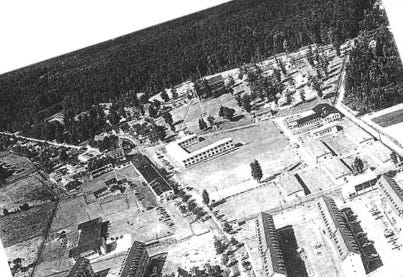I’ve always believed that
you will only see a culture in its totality, see it thoroughly, sees its
wonders and damage, when you go through the cracks.
I don’t know where this
belief comes from. Perhaps it is a vestige of the New Testament I was taught in
Sunday School. It severely underestimates the effects of going through the
cracks – this I know from experience. Most often, instead of trying to
understand the culture you spend that experience counting your pennies and
looking for cheap intoxicants, Going through the cracks is terrifying, and
terror is not conducive to collecting the forces of your spirit and
understanding the mechanics of the great wheel of fortune that is crushing your
bones. Splinter and crack, splinter and crack.
Nevertheless, the theory is
not wholly flawed. A culture’s vision of itself is manufactured by those paid
to manufacture such visions – follow the money and you will soon find that the
mass of our images and understandings attach to the advertisement for reality
these people manufacture, often in all sincerity. This is the vision from the
gated community, from the Eloi and their children. It has long been stuffed
down my throat good and proper. I’m no
longer the Morlock I once was, but I know I am made, essentially, of mud, and
am not going to rise much higher. The Eloi will forever be out of my grasp.
Politically, we are
supposed to believe that these issues can be understood by a simple dualism
between left and right. I lost that illusion in the 00s, at least. To
understand the culture when you are going through the cracks, your best guide
is to follow your instinct and think of the culture as a many-splendored thing,
for which you have to make up categories in your own home or hole.
What struck me in the Bush
era wass how, instead of a left opposition, in America, you have an opposition
that is the prisoner of cool. Cool has taken the place of ‘respectability’ as
the ‘moral civilization’ in which all move in lockstep, even those who have
some contempt for the images projected by the Eloi.
It is a long, strange trip
for cool. At one point, in the fifties, cool came in a binary: its opposite was
square. Square, now, is one of those words that can only be quoted, never said
straight. It is all too reference laden with a certain ersatz Hollywood
swinging culture – a culture that seems more improbable than the culture of
Edwardian England or the fictional Mad Max cultures of the apocalypse.
Square, of course, stood in
for the respectable back in the early era of cool – which would make cool its
negation. And it is in this vein that the change from respectability was
actually interpreted. Robert Erwin, in a 1983 essay, What Happened to Respectability,
assessed the changes of the 60s and 70s in terms of a wholesale decline in the
forms of the culture that used to add up to respectability, and the triumph of
the informal – a dialectic that he captures by contrasting Nixon and Saturday
Night Live. Incredibly enough, in 1983 Erwin could plausibly present the rather
pallid vaudeville of Saturday Night Live as a sort of revolutionary symbol of a
change in mass behavior.
|”The degree to which the
ideal [of respectability] was internalized also indicates its strength. Richard
Nixon seems classic as well as villainous when he wears a suit, pressed and
buttoned, to board a private airplane. Elliott Gould seems only show-biz
carbonated when, smiling sweetly and wearing a ratty football jersey, he tells
a national television audience that he is glad to host “Saturday Night Live”
because the progam, in his words, “has balls.” You cannot imagine, Class of
1975, what a fright, embarrassment and hostility Gould’s breaking of a taboo
would have triggered in the heyday of respectability. Millions upon millions of
‘dent’ people in 1860 or 1960 went from one year to the next rarely speaking,
hearing or reading such words in the open.”
Erwin, I think, mistakes a
shifting of exterior symbols for a change in substance. What he was watching, I
think, was the absorption of cool into a new domain of servitude – the
servitude inherent in the service economy – rather than a true Bastille moment.
Gould’s audience, perhaps, could not imagine a figure like Father Coughlin, in
the 30s, casually talking down Jews on national radio time, or the kind of
dialect humor that was omnipresent in the Gilded Age and right up to the 1950s.
This is not to say that the shifting of terms was insignificant – it is merely
to say that in the shift from formal to informal, from an ideal of
respectability to an ideal of cool, the contradiction traversed was shallow.
2.
The January 1, 1951 of
Commentary carried an article by Anatole Broyard entitled KEEP COOL, MAN: The Negro
Rejection of Jazz. In the corner of the article, there was a little bio of Broyard:
“Anatole Broyard, anatomist of the Negro
personality in a white world, here lays open the deeper meaning of the
injuction to “be cool, man” now current in Harlem music-making.” The ambiguity
of being the anatomist of the Negro personality in a white world trailed Broyard
around throughout his life. He was a
pale skinned man, apparently, and though he did not call himself white, there
was a rumor that he ‘passed’ as white. Race, that chopping block in American
culture! Broyard was, it is said, the figure that Phillip Roth referenced with
his character Coleman Silk in The Human Stain. Roth
himself denied it, in a strange “letter” to Wikipedia, where this rumor was
referred to as fact.
Whether Broyard presented himself as black –
whatever that means – or had some responsibility to do so is wrapped up in the
white supremacist subtext of the American dream: one that it is difficult to
drain out of that dream without popping it entirely. However it is certain that
he wrote a lot about black culture for magazines like Commentary, who accepted
him as a “guide” – setting up one of those informant-explorer relationships
that always come to a bad end, unless you have the genius to understand how to
make the joke and slip the yoke, like Ralph Ellison.
Broyard’s essay is notable for appearing about the
time that the notion of “cool” was slipping into the vocabulary of a certain
white subculture, after circulating in a black sub-culture. For Broyard, the
concept marks a certain loss of innocence. Broyard’s essay supposes, again and
again, an equation between negro and primitive – meaning, positively, an innocent
autonomy, and meaning, negatively, a certain essentialist imprisonment in which
“civilization” is seen as the corruption of this innocence. The boundary at
which innocence trucks with corruption is music – particularly jazz.
“In this period, Negro popular culture began to
incorporate into its body proper certain elements of white society, drawn for
the most part from the less favored ethnic and economic groups… Their
incorporation as spectator, participant and devotee served to further split the
consciousness of Negro popular culture. The Negro became increasingly aware of
his role as creator and performer. He himself however was still the subject matter of his
performance. His music – in lyrics and feeling – remained autobiographical and
continued to express his reactions to his situation.”
The fifties was the heyday of the Hegelian notion
of the master-slave relationship – you can call it the Partisan Review effect, or
at least I will call it that, ho ho. It turns up all over as the master trope
to understand American society, and particularly, for obvious reasons, America’s
system of apartheid. This is the context in which music and civil rights and
oppressions background the formation of an existential attitude. That attitude
takes the term “cool” as its own master-trope. Jazz, in Broyard’s view, is
terminally anchored to “hotness”, which in turn has become, after the moment of
spectatorship by a curious white sub-class – one that is marked as deviant by
its very interest in black culture – a property lost, an innocence that could
no longer be sustained. In the moment of that gaze, hotness turns to jive.
There is a lot of futurity in Broyard’s essay,
themes that continue – through Mailer’s The White Negro – into the sixties and
into the Black Power movement itself. My view is that the imprisoning idea of “cool”
comes out of this image of an innocence that is corrupted in the moment of its
consumption, which is less history than a nostalgic substitute for history.
Here's Broyard pursuing his thesis: “Bebop, which began in the mid-40s, was the
expression of the Negro’s search for new material in this period. It was the
improvised interpretation of experience of the Negro musician as immigrant in
white society. Because he was a foreigner, it was a kind of gibberish.”
The idea that he was a “foreigner”
is a product less of the real economic and social situation of apartheid – for this
foreigner was, actually, a laborer and consumer in the system, and had made the
system work from the very beginning not as an immigrant but as a kidnapped
hostage – than of the magic of the image
of the master-slave relationship, which seemed to explain so much about racism
while relying on highly abstracted essential types that could not explain the
reality of a person like, say, Anatole Broyard.
3.
So much for cool’s background.
The problem with the history of concepts is the same problem that the cowboy
faces on the plain – how to move the doggies forward. In other words, how did
cool transform from an existential attitude into an imprisoning trivialization
of affect? Which is, you might say, sharp eyed reader, a transformation of
Broyard’s myth – the fall from innocence leading us to the corruption of the
present. The story surely has to do with the attractiveness of “cool” in a
postwar consumer society, in which “like” and “dislike”, those responses to the
handcrafted, are elevated quantitatively to responses to the mass produced. The
time to like, that is, the education of the sensibility that creates a
patterned liking and disliking that signifies something about character, becomes
something hard to resource. Where is one going to get this time, and how is one
going to afford that education? Out of this dilemma, I think, comes the
solution imposed by the ”cool”. Imported from the “stranger”, the black
entertainer/artist, it goes out there as a short-cut to the sentimental
education that is overwhelmed by consumer culture. Which Broyard lays out in
racial terms that are pretty marvelously put. I’ll finish with this paragraph
about “cool music”, or jazz beyond the swing era, and its tragic flaw:
“The circular quality of cool
music is unmistakable. The orchestrations and the solos turn back on themselves
as a result of the “cool” musician’s lack of interest in the autobiographical
continuities which served as program, mood or configurations of jazz, jump or
wing. The circle is the most self-contained form in nature, and thus, in cool
music, nothing obtrudes, the effect is zero. The supporters of this music might
argue that all music- i.e. “classical” “serious, nonfolk music – is tautological
or equal only to itself, but their own habit of interpreting cool music and
describing the musicians’ attitudes in psychological terms would contradict
this. In other words, this zero is attitudinal, not an aesthetic effect. It is
the cool man’s answer to the difficult algebraic problems of the marginal man’s
place in society.”
The algebraic problems! The
problem, I guess, of the variable that represents a number which itself varies
according to the formula that gives the variable its value. Now that is
something for the marginal man to ponder. Un-coolly.







